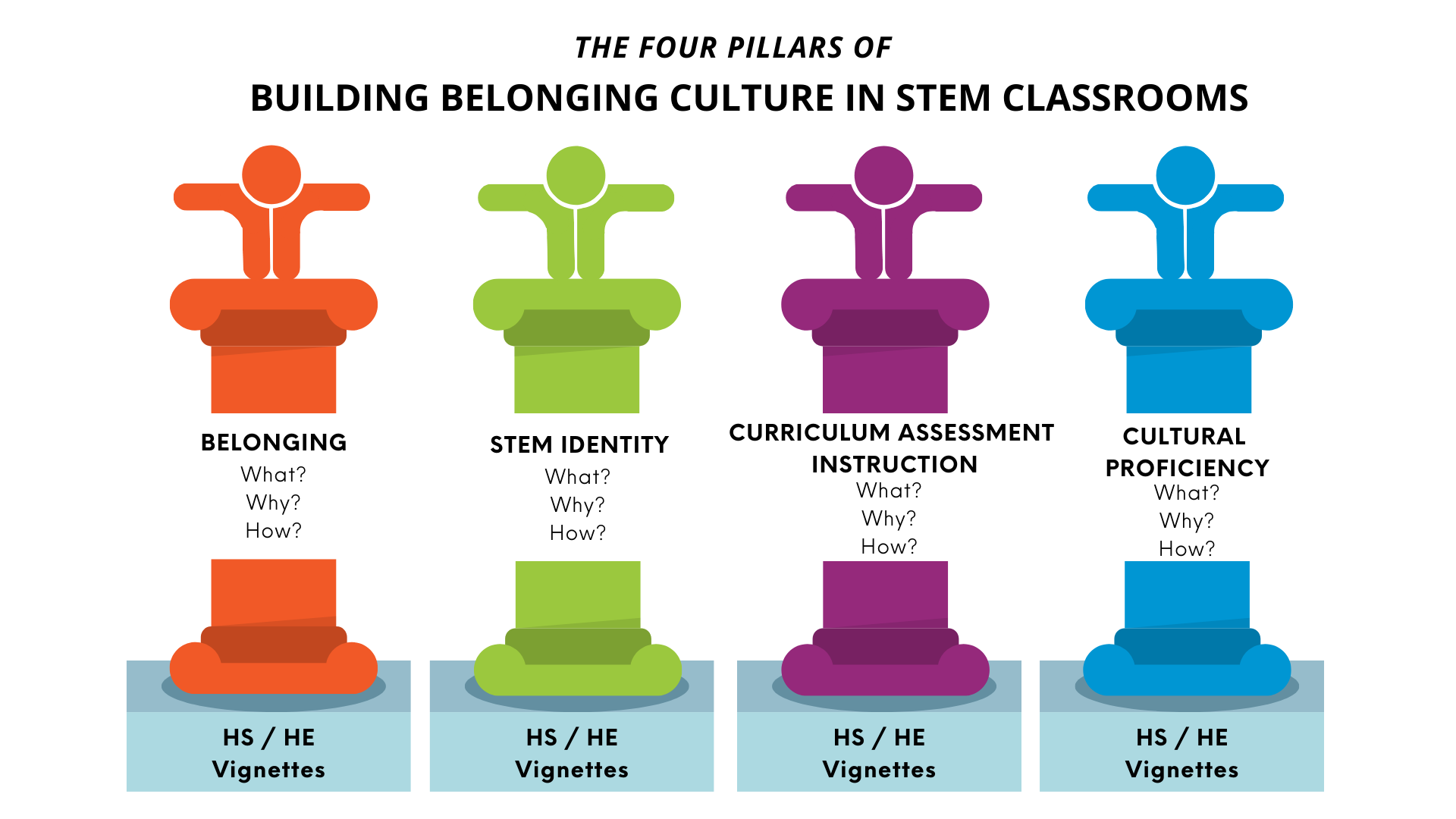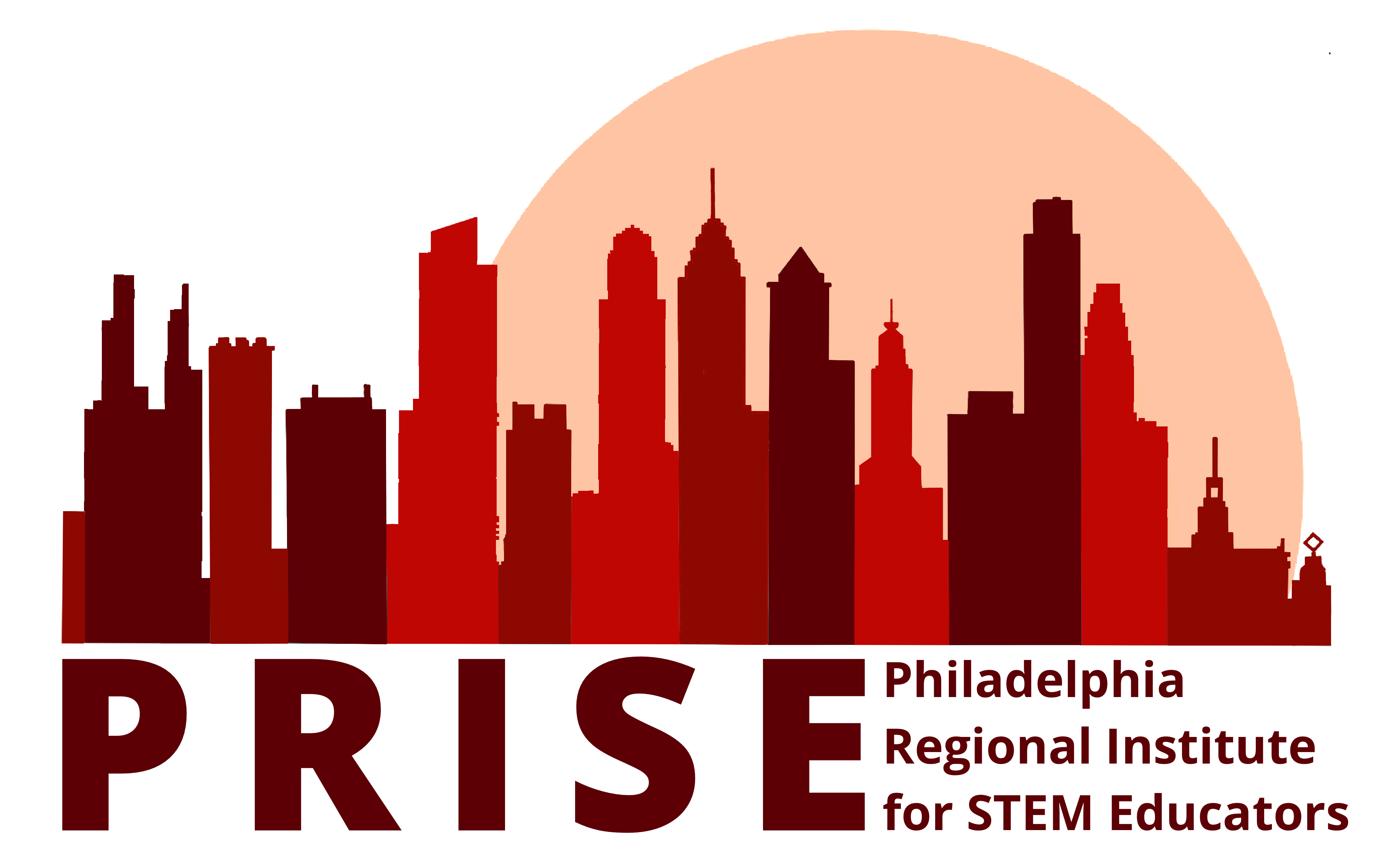Building Belonging Culture in STEM Classrooms
Building Belonging Culture in STEM Classrooms: A Framework
Philadelphia Regional Institute for STEM Educators (PRISE) at Saint Joseph’s University Diversity, Equity, and Inclusion (DEI) Subcommittee developed the Building Belonging Culture in STEM Classrooms Framework as a call to action to improve teacher practices and school environments in order to foster belonging and create welcoming and engaging STEM classrooms where all students are empowered to persist in STEM courses, pursue STEM careers, and gain STEM literacy.
This work has evolved in the context of the city of Philadelphia; Black and Latinx students face obstacles to participate in STEM, leading to underrepresentation in STEM classrooms, college STEM majors, and STEM-related occupations. Therefore, the Framework focuses on Black and Latinx students in the American educational system, the specific challenges that they face, and ways to reduce their opportunity gaps.
The essential question guiding the work is: How can teachers foster a sense of belonging in STEM classrooms so that all students can persist, engage, and consider STEM as a viable pathway to exercise choice in their academic and professional lives?
The authors of the framework recognize that the condition for building a belonging culture in STEM classrooms requires a focus on cultural proficiency. To develop STEM classrooms that allow all students to experience belonging–educators must become culturally proficient. This journey begins with (1) knowing yourself and (2) knowing your students. The Guiding Pillars of the framework include: (1) Cultural Proficiency (2) STEM Identity, (3) Belonging, and (4) Curriculum, Assessment, and Instruction.
For each of the pillars, the Framework addresses five questions:
What is the pillar?
What is the problem?
Why is it a problem?
How can the problem be solved at various levels?
What does effective practice look like?

Using the Framework
The Framework focuses on more than just change in the classroom; rather, it considers the role of curriculum, assessment and instruction which extends beyond one classroom, and provides recommendations for administrators in addition to teachers. Wherever a teacher, administrator, or organization is in their journey towards creating educational environments that are welcoming and effective for their students, they can enter into the Framework: delve into examples of other educators working towards change; plan for individual change; and collaborate towards systemic change. We hope that the Framework can serve as a resource for building collaborations within the K-20 STEM education system to support transformation in instructional practices in ways that will better serve Black and Latinx students. We want it to support their emerging STEM identities, provide them with spaces of belonging in STEM, and support their access to careers in STEM fields where they are currently underrepresented.
An excerpt from the Framework can be found here insert soon
Many thanks go to the PRISE DEI Subcommittee Advisory Board Planning Team that worked with regional K-20 educators to develop the framework.
Advisory Board – Planning Team
Bonnie Hallam, PRISE Project Coordinator, bhallam@sju.edu
Arthur Mitchell, STEM Equity Alliance Executive Director, mitchell@ustempa.com
Betsy Payne, Manager, Philadelphia STEM Ecosystem, spayne@philaedfund.org
Greer Richardson, PRISE Associate Director, grichard@sju.edu
Aubrey Wang, Co-Director of Teaching and Learning, Saint Joseph’s University, awang@sju.edu
Barbara Moore Williams, BMW Consulting for Diversity, Equity and Inclusion, bmoorewilliams@gmail.com
Stacy Olisky, Associate Professor, St. Joseph’s University, solitsky@sju.edu
Advisory Board K-20 Educators
Mark Avitable, Supervisor of Teaching and Learning, Delaware County Intermediate Unit, markavitabile@gmail.com
Shameeka Browne, Math Specialist, Lower Merion School District, Shamprk@aol.com
Lisa Chen, Math Teacher, Springfield School District, lisa01.chen@gmail.com
Nancy Hopkins Evans, STEM Consultant, drbiochem94@comcast.net
Christopher McGinley, Professor of Practice, Temple University, cwmcginley@gmail.com
Jason Porter, Academic Solutions Group, Senior Education Strategy Consultant, jason@academicsolutionsgroup.com
Dan Uueda, STEAM Curriculum Specialist, School District of Philadelphia, duueda@philasd.org
For more information about the Framework and how the work can become a part of your teaching practices, please contact info@prisephilly.org
